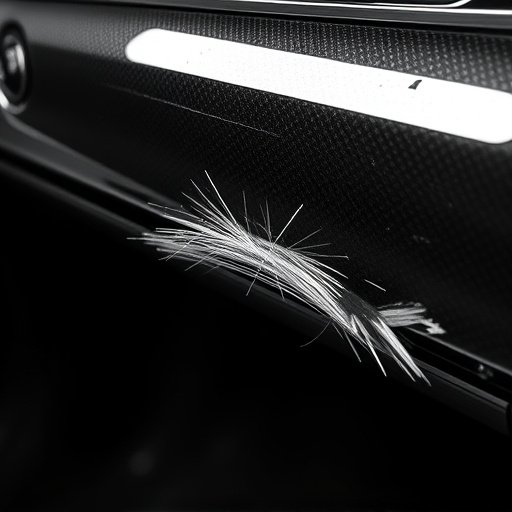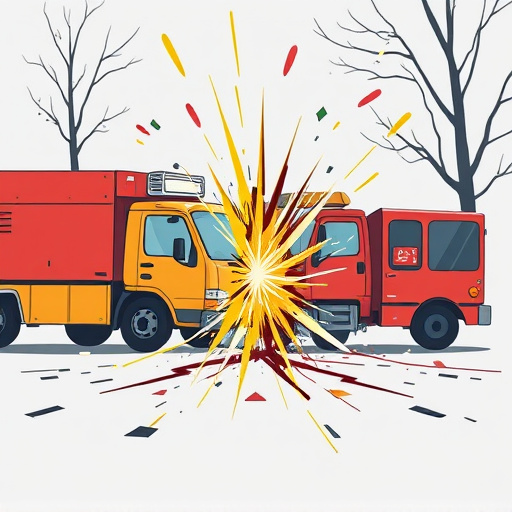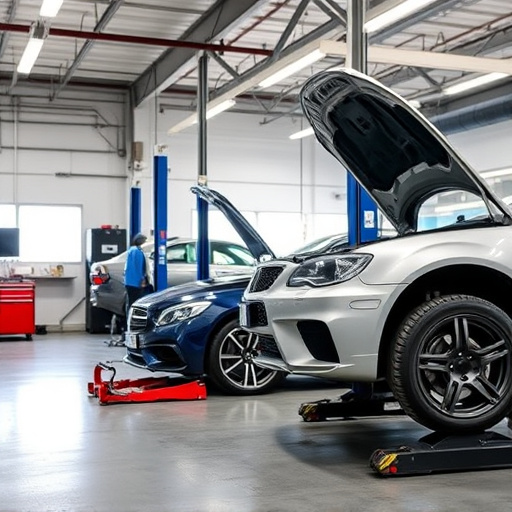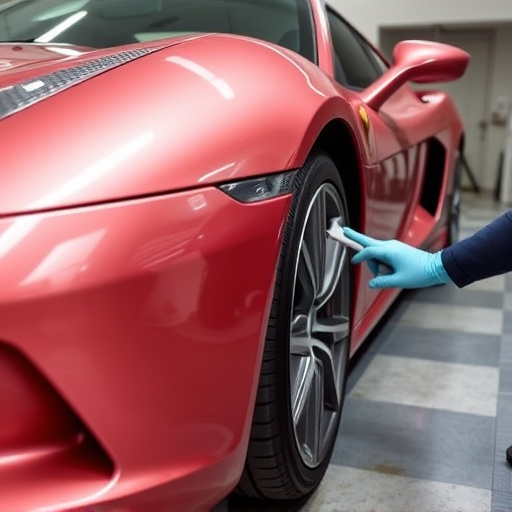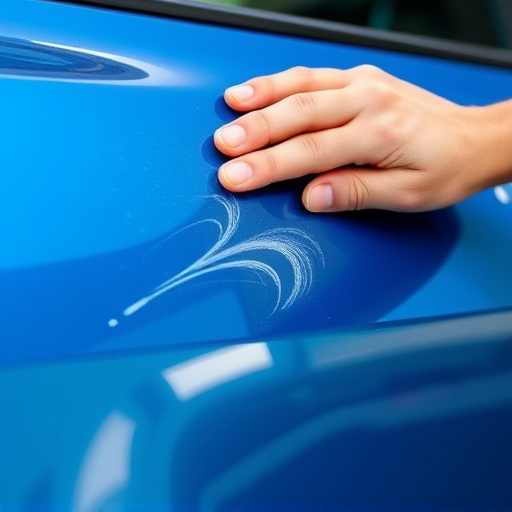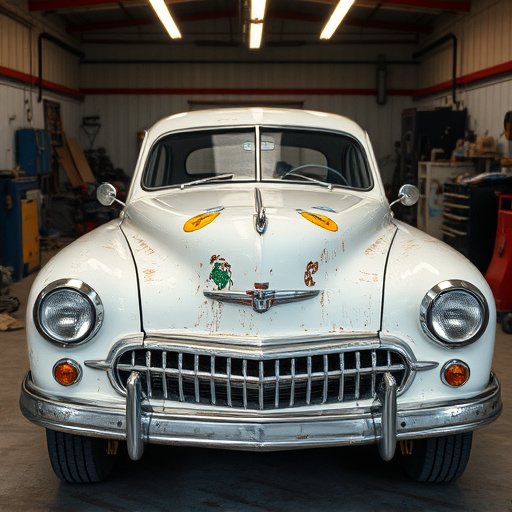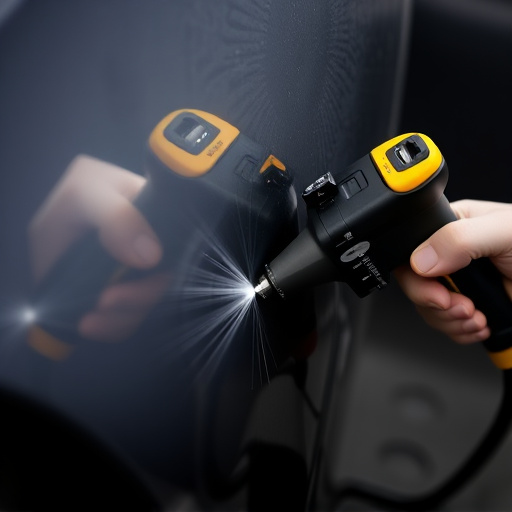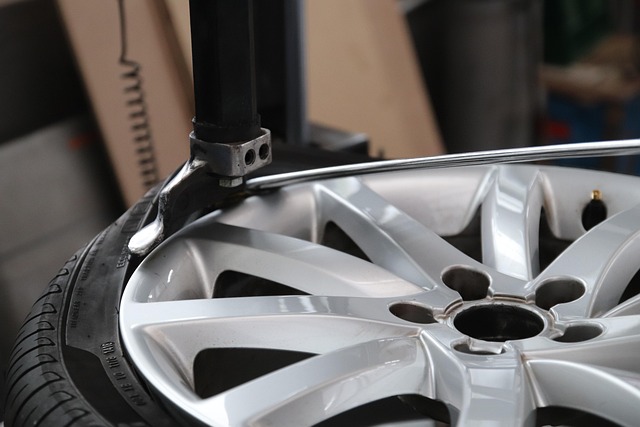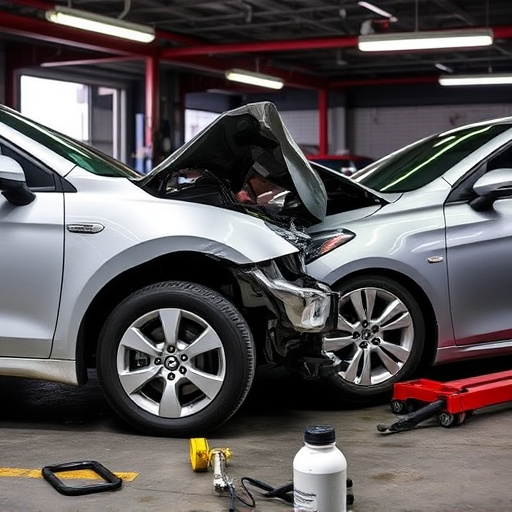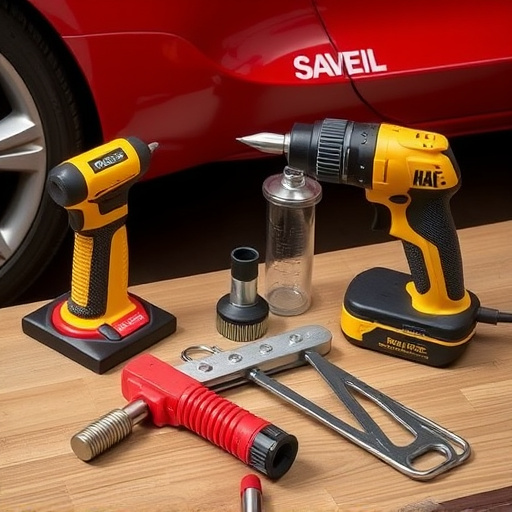Airbag modules, critical for vehicle occupant safety during collisions, require prompt maintenance and repair after accidents. Severe collision damage can cause internal issues like punctured inflators or compromised sensors, necessitating either specialized repairs or full airbag module replacement. This delicate process involves disassembling, inspecting, and installing a new module while preserving car bodywork integrity using genuine parts and specialized tools. Precise alignment and secure fastening are vital for effective airbag deployment in future collisions.
Collision damage can significantly impact the functionality of airbags, emphasizing the importance of understanding how these safety systems work and what happens when they’re compromised. Airbags play a crucial role in vehicle safety, inflating rapidly in collisions to protect passengers. However, collision damage may render an airbag ineffective or even hazardous. This article delves into the intricacies of airbag modules, explores the effects of collision damage, and guides through the essential process of airbag module replacement.
- Understanding Airbag Modules and Their Role in Safety
- The Impact of Collision Damage on Airbag Functionality
- Airbag Module Replacement: Process and Considerations
Understanding Airbag Modules and Their Role in Safety
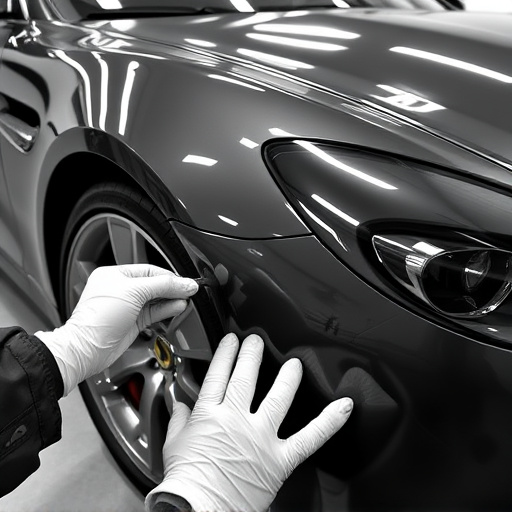
Airbag modules are crucial safety components designed to protect occupants during a collision. These sophisticated devices are integrated into vehicles and operate swiftly in the event of an accident, deploying airbags to cushion the impact. The airbag module replacement process is a critical aspect of maintaining vehicle safety standards. When a car experiences a collision, even minor ones, it can impact the functionality of these modules.
Understanding how these systems work is essential for both consumers and automotive professionals. In simple terms, sensors detect rapid deceleration, triggering a chemical reaction that inflates the airbag in milliseconds. This rapid deployment is vital to minimize the risk of severe injuries. Regular maintenance and prompt repair, including bumper repair or auto dent repair services, are necessary to ensure these life-saving devices remain operational. Car bodywork services play a significant role in restoring vehicles after accidents, guaranteeing that all safety features, including airbag modules, function correctly.
The Impact of Collision Damage on Airbag Functionality

The severity of collision damage can significantly impact the functionality of airbags, particularly the airbag module. In a high-impact collision, the force and energy exerted on the vehicle bodywork can cause internal damage to the airbag system, affecting its ability to deploy effectively. Airbags rely on intricate mechanisms that, when compromised, may lead to maldeployment or complete failure to operate during an accident. This is especially critical in scenarios where the safety of occupants depends on these life-saving devices.
Collision damage can cause various issues within the airbag module, from punctured inflators to compromised sensors and control units. These defects require careful evaluation and often necessitate specialized car bodywork services for repairs or, in severe cases, complete airbag module replacement. Proper restoration of the vehicle’s safety systems is crucial, ensuring that the car bodywork not only looks good but also functions optimally, providing enhanced protection for future journeys.
Airbag Module Replacement: Process and Considerations

Airbag Module Replacement: A Delicate Process
When an airbag module is compromised due to a collision or accident, its replacement becomes a critical step in ensuring vehicle safety. The process involves careful disassembly and inspection of the damaged component. It’s crucial to source genuine replacement parts that meet the original manufacturer’s specifications to maintain optimal functionality and reliability. Automotive repair specialists employ specialized tools and techniques to extract the old airbag module while preserving the surrounding car bodywork integrity.
During installation, technicians ensure precise alignment and secure fastening to prevent any future malfunctions. Vehicle body repair expertise is essential here, as even minor misalignments can impact the airbag’s deployment effectiveness. The goal is to restore the vehicle’s safety system to its full potential, ensuring that the next time a collision occurs, the airbags deploy precisely when needed, protecting occupants and minimizing the severity of injuries.
Collision damage can significantly impact the functionality of airbags, emphasizing the importance of prompt and proper airbag module replacement. Understanding how crashes affect these vital safety features is crucial for ensuring driver and passenger protection. When an airbag module is compromised, replacement is often necessary to restore optimal safety measures. This process involves careful assessment, part selection, and expert installation, all of which contribute to maintaining the vehicle’s overall safety performance. Therefore, recognizing the need for airbag module replacement after a collision is a key step in keeping both drivers and passengers safe on the road.
